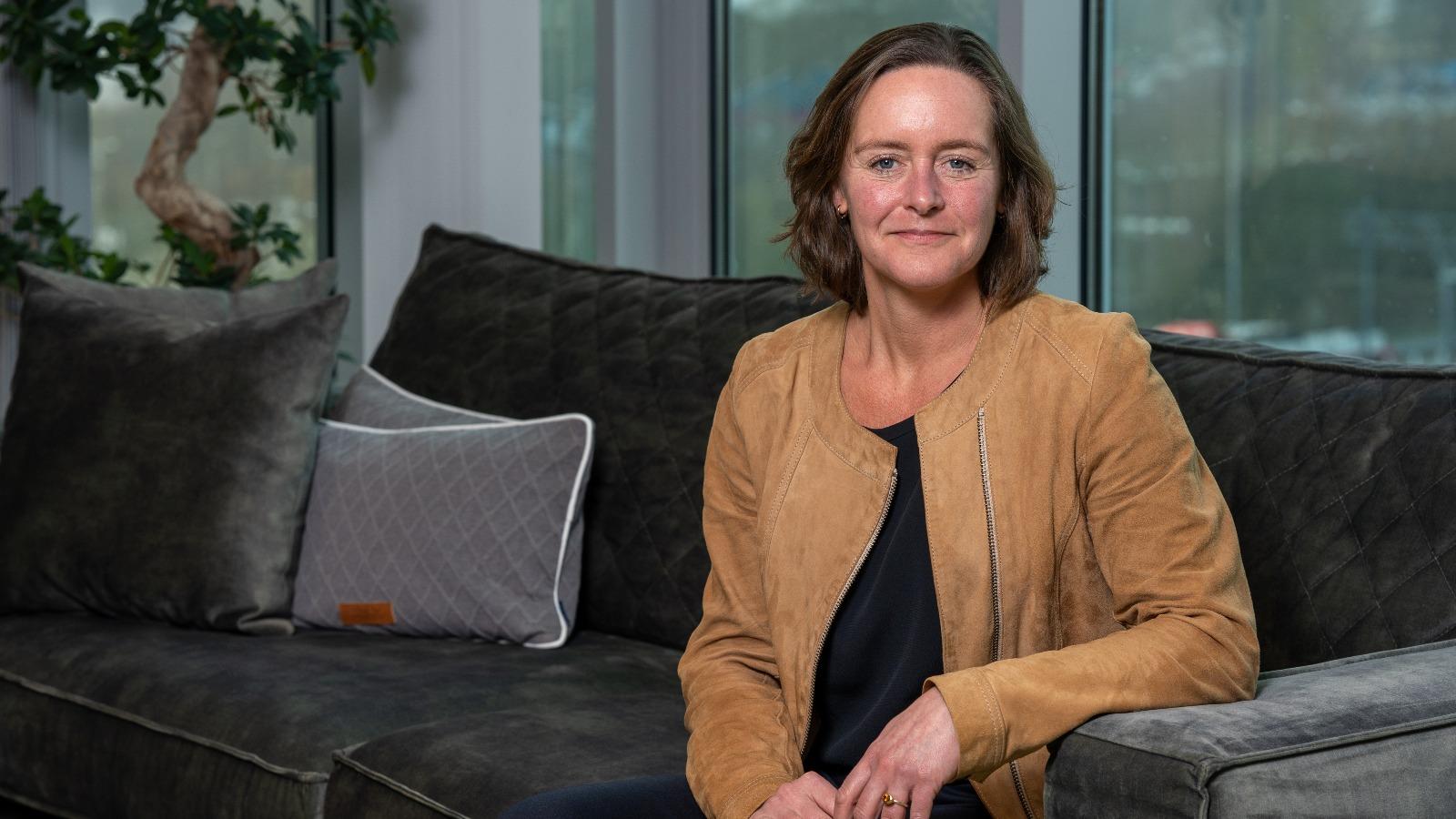More than compliance
Leonie Schreve has been working at PwC for eighteen months now. Before that, she was employed by ING for eighteen years and worked for several years as a consultant at RoyalHaskoningDHV. At PwC, her focus is on realising sustainable deal value. Not only during the deal process, but preferably also well before and after. 'As an organisation you should not look at sustainability because it is or will become mandatory, but as a must to run your business even better. That requires a 360-degree approach to properly understand the company and the market and to help it gain insight into the opportunities for value creation.'
Creating new value
Of course, laws and regulations must be complied with, but Schreve talks to clients precisely about the insights that arise once things have been implemented. 'If you, as an organisation, know exactly which buttons you can press to save costs, and to work more efficiently, you can ultimately create more value. And that is where our strength lies. In contrast to the traditional compliance approach, we look much more at whether organisations have already set things in motion, whether they are already well positioned and whether/how they can subsequently create opportunities.
In principle, we try to quantify sustainability as much as possible and then involve various areas of expertise. Think of tax capabilities, both in terms of subsidies and taxes. But also strategy, data capabilities, operational efficiency and, of course, our financial expertise. This can be different per deal, depending on the type of deal and the sector. We also work a lot with HR specialists and we can identify issues such as significant 'gender pay gaps'. In this way we make sustainability aspects very transparent and we show the potential for developing new value.'
PwC's Global Private Equity Responsible Investment Survey 2023 - a survey of more than 150 private equity firms - shows that respondents overwhelmingly believe ESG management can help create value. About 70 per cent place value creation among the top three drivers for their organisation's ESG activities. The survey results also indicate that it is now standard practice for PE companies to consider ESG factors when looking for opportunities, conducting due diligence, preparing post-acquisition plans, and making decisions about deal terms.
From awareness to actual transformation
Ideally, Schreve and her team are already on board with an organisation a year before a (potential) deal. To prepare the organisation as well as identifying opportunities for the deal and to include sustainability in the entire sales story. And after a deal there are always post-deal recommendations, which can then be taken up by other departments. 'The positive thing about this approach is the reactions we get from more and more clients: “I didn't feel like starting with sustainability at all, but I found this process really value adding. I learned so much and now know that you can also look at it in a different way. It's not something we 'do on the side', but something to fully integrate into our business.” Because of these kinds of reactions, I think that organisations will increasingly value sustainability. And the next step is to convert that realisation into actual transformation. Because ultimately, sustainable deal value also means financial value: staying in business or expanding your business. You have to market that story clearly.'
Impact of climate change and other challenges
Sustainable deal value is also related to external factors such as climate change and biodiversity. 'Climate change has an impact on production and the sustainability of that production,' says Schreve. That's a big risk to think about. Think of coffee producers or winegrowers... you have to ensure that you already grow your products in different places, because there is a chance that a harvest will fail or that it will no longer be possible in five to ten years. This also means that as a company you must have a good understanding of the entire value chain in order to optimise it.
Water is also going to be a huge challenge. Too much water or too little water. Recently there were alarming reports that we in the Netherlands also run a possible risk of not having clean drinking water in x number of years. And water problems in the world can also cause other problems, like climate refugees. That will be a very big challenge.'
Breaking through the ecosystem together
'With our 360-degree approach, we take an outside-in perspective on various components and then look at how we can respond to all those components and associated drivers', continues Schreve. 'And that goes hand in hand with critical questions, such as: what sustainability initiatives have you initiated? Do you measure these? Do you have certifications? Maybe not everywhere yet? But what are your ambitions in that? What targets have you set? Do you develop sustainable product solutions or services to tap into a growing demand? How do you deal with questions from the ecosystem you are in? What is your emission? Do you already measure that? And how do you do that? Have you set targets for that? How do you prepare for regulations and are you aware of possible implications? And what do you want to know about the organisations you work with? Do you also want to collect data from them? And if so, which ones? How do you deal with scarce staff? Do you also have programs to attract and retain talent? And do they work? What are your progression numbers? How do you deal with a possible 'gender pay gap'? How diverse are you already? And how do you score compared to your peers?
We make an analysis based on these kinds of questions. So that we can anticipate based on calculations and valuations. We are seeing the latter more and more. If the ESG implementation and initiatives are missing or insufficient, we see potential buyers cutting the price for sustainability reasons.'
Where a compliance approach is mainly based on evidence, Schreve and her team look much more at market dynamics and opportunities. 'In many cases we rely on discussions with the management of organisations. We interview experts in the market to test certain statements made by our clients. And therefore look more ahead. In the field of sustainability, a lot of data is simply not yet available. But that does not alter the fact that we do put a stamp on it that it is PwC-proof. That has a lot of value in the market.'
Want to read more about value creation?
Sign up for PwC Update and stay informed.
Contact us

















